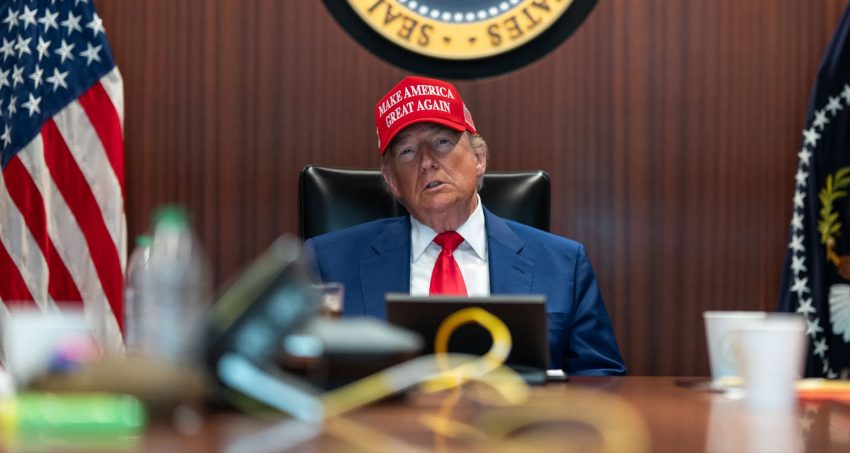President Cyril Ramaphosa and his US counterpart Donald Trump spoke by phone on the eve of the introduction of Washington’s punitive new tariff regime.
The call signals an effort by the authorities in Pretoria to invigorate negotiations on a new trade deal with its biggest partner after China. The two nations have failed to make substantive progress on an accord since their leaders met at the White House in May.
Their call on Wednesday coincided with a meeting between South Africa’s foreign minister, Ronald Lamola, and US chargé d’affaires David Greene — currently the top US diplomat in Pretoria. Trump and Ramaphosa plan further talks, South Africa’s presidency said in a statement on Thursday.
“The two leaders undertook to continue with further engagements recognising the various trade negotiations the US is currently involved in,” it said. “Respective trade negotiating teams will take forward more detailed discussions.”
The US imposed 30% tariffs on imports from South Africa, the highest duty charged on goods from any sub-Saharan African nation, as part of a shake-up of its relationship with its trading partners.
Relations between Pretoria and Washington have deteriorated since Trump returned to power in January, with his administration criticising South African policies aimed at redressing racial inequality, the country’s close ties with nations including Russia and Iran, and Pretoria taking legal action against Israel — a key US ally — over its war in Gaza.
‘Non-negotiable’
While talks on a new deal are continuing, South Africa won’t change any of its laws at the behest of the US, minister in the presidency Khumbuzo Ntshavheni told reporters at a briefing on Thursday.
“The transformation agenda of this country is non-negotiable,” she said. South Africa’s government is modelling the impact of the tariffs on employment if the government is unable to achieve a more-favourable deal.
Read: South African car exports show grit as Trump tariffs bite
The trade department estimates that 30 000 jobs will be lost across all sectors, while the central bank has warned that more than 100 000 jobs in the motoring and agriculture industries may be at risk. — Ana Monteiro and S’thembile Cele, (c) 2025 Bloomberg LP
Get breaking news from TechCentral on WhatsApp. Sign up here.
